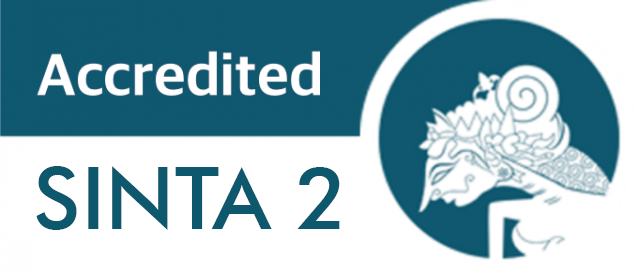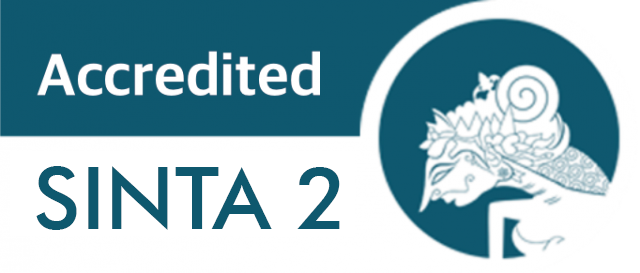Hyperprolactinemia as a side effect of using antipsychotics In Schizophrenic Patients
Downloads
Introductions: Antipsychotics are still the mainstay of schizophrenia management. Antipsychotics are antagonistic to postsynaptic dopamine receptors in the brain. Blockade of dopamine receptors in the tuberoinfundibular pathway by antipsychotics will cause the side effect of hyperprolactinemia. Objectives: This review describes hyperprolactinemia induced by antipsychotic use and its clinical effects, monitoring, and management. Methods: reference search through Google Scholar with keywords schizophrenia, antipsychotics, prolactin, hyperprolactinemia, clinical effects of hyperprolactinemia, diagnosis of hyperprolactinemia, monitoring of hyperprolactinemia, management of hyperprolactinemia. Results: Clinicians need to take a diagnostic approach to identify the etiology of hyperprolactinemia, monitor the clinical symptoms of hyperprolactinemia during the administration of antipsychotics, and immediately carry out management according to existing strategies by considering some general principles and considerations. Conclusions: Schizophrenia is a severe mental disorder that lasts long, requiring long-term and continuous therapy. Administration of antipsychotics is still a mainstay in the management of schizophrenia. Antipsychotics are antagonists to postsynaptic dopamine receptors in the brain. The antipsychotic effect of blocking dopamine receptors not only improves the symptoms of schizophrenia but also causes side effects. The side effect when the tuberoinfundibular dopamine pathway is blocked is an increase in prolactin levels called hyperprolactinemia.
M. D. Benjamin J. Sadock, M. D. Virginia A. Sadock, and M. D. Pedro Ruiz, KAPLAN & SADOCK'S Synopsis of Psychiatry Behavioral Sciences/Clinical Psychiatry, 11th ed. Philadelphia: Wolters Kluwer, 2015.
A. C. Altamura, A. Fagiolini, S. Galderisi, P. Rocca, and A. Rossi, "Integrated treatment of schizophrenia,” J. Psychopathol., vol. 21, no. 2, pp. 168–193, 2015, [Online]. Available: https://www.jpsychopathol.it/wp-content/uploads/2015/09/08_Altamura1.pdf.
E. Soto-Pedre, P. J. Newey, J. S. Bevan, N. Greig, and G. P. Leese, "The epidemiology of hyperprolactinaemia over 20 years in the Tayside region of Scotland: the Prolactin Epidemiology, Audit and Research Study (PROLEARS),” Clin. Endocrinol. (Oxf)., vol. 86, no. 1, pp. 60–67, 2017, doi: 10.1111/cen.13156.
A. Annamalai, "Hyperprolactinemia,” in Medical Management of Psychotropic Side Effects, 1st ed., Springer International Publishing, 2017, pp. 85–91.
E. Soto-Pedre, P. J. Newey, J. S. Bevan, and G. P. Leese, "Morbidity and mortality in patients with hyperprolactinaemia: The PROLEARS study,” Endocr. Connect., vol. 6, no. 8, pp. 580–588, 2017, doi: 10.1530/EC-17-0171.
O. A. Mazher, E. Maneta, and W. Hall, "Treatment of risperidone-associated hyperprolactinemia with aripiprazole,” Boston, 2018. doi: 10.1097/JCP.0000000000000942.
S. M. Stahl, Stahl's Essential Psychopharmacology Neuroscientific Basis and Practical Application, Fourth. New York: Cambridge University Press, 2013.
J. Peuskens, L. Pani, J. Detraux, and M. De Hert, "The effects of novel and newly approved antipsychotics on serum prolactin levels: A comprehensive review,” CNS Drugs, vol. 28, no. 5, pp. 421–453, 2014, doi: 10.1007/s40263-014-0157-3.
O. Serri, C. L. Chik, E. Ur, and S. Ezzat, "Diagnosis and management of hyperprolactinemia,” Cmaj, vol. 169, no. 6, pp. 575–581, 2003, [Online]. Available: https://www.cmaj.ca/content/cmaj/169/6/575.full.pdf.
R. C. Peveler et al., "Antipsychotics and hyperprolactinaemia: Clinical recommendations,” J. Psychopharmacol., vol. 22, no. 2 SUPPL., pp. 98–103, 2008, doi: 10.1177/0269881107087346.
I. Samperi, K. Lithgow, and N. Karavitaki, "Hyperprolactinaemia,” J. Clin. Med. Rev., vol. 8, no. 12, pp. 1–24, 2019, doi: 10.3390/jcm8122203.
L. Vilar, C. F. Vilar, R. Lyra, and M. Da Conceiçí£o Freitas, "Pitfalls in the Diagnostic Evaluation of Hyperprolactinemia,” Neuroendocrinology, vol. 109, no. 1, pp. 7–19, 2019, doi: 10.1159/000499694.
J. Huang et al., "Efficacy and acceptability of three prolactin-sparing antipsychotics in patient with schizophrenia: a network meta-analysis,” Psychiatry Clin. Psychopharmacol., vol. 29, no. 4, pp. 369–378, 2019, doi: 10.1080/24750573.2019.1662629.
Y. Setiawati, "Amenorrhea Sebagai Efek Samping Antipsikotik Dalam Penatalaksanaan Skizofrenia Pada Perempuan Amenorrhea As a Side Effect of Antipsychotics in the Treatment of Women,” pp. 22–33, 2017, [Online]. Available: http://journal.unair.ac.id/download-fullpapers-pjseba48076fefull.pdf.
M. De Hert, J. Detraux, and B. Stubbs, "Relationship between antipsychotic medication , serum prolactin levels and osteoporosis / osteoporotic fractures in patients with schizophrenia : a critical literature review Review Relationship between antipsychotic medication , serum prolactin levels an,” Expert Opin. Drug Saf., vol. 15, no. 6, pp. 809–853, 2016, doi: 10.1517/14740338.2016.1167873.
S. Doǧan Bulut et al., "The effect of antipsychotics on bone mineral density and sex hormones in male patients with schizophrenia,” Psychiatr. Danub., vol. 28, no. 3, pp. 255–262, 2016, [Online]. Available: http://www.psychiatria-danubina.com/UserDocsImages/pdf/dnb_vol28_no3/dnb_vol28_no3_255.pdf.
A. Rady, A. Elsheshai, O. Elkholy, H. Abouelwafa, and M. Eltawil, "Long Term Use of Antipsychotics and Adverse Effects on Bone Density,” Neuropsychiatry (London)., vol. 08, no. 05, 2018, doi: 10.4172/neuropsychiatry.1000491.
G. Mazziotti, S. Frara, and A. Giustina, "Pituitary diseases and bone,” Endocr. Rev., vol. 39, no. 4, pp. 440–488, 2018, doi: 10.1210/er.2018-00005.
A. N. Johnston et al., "Hyperprolactinemia-inducing antipsychotics increase breast cancer risk by activating JAK-STAT5 in precancerous lesions,” Breast Cancer Res., vol. 20, no. 1, pp. 1–13, 2018, doi: 10.1186/s13058-018-0969-z.
S. Gupta, D. A. M. Lakshmanan, U. Khastgir, and R. Nair, "Management of antipsychotic-induced hyperprolactinaemia,” BJPsych Adv., vol. 23, no. 4, pp. 278–286, 2017, doi: 10.1192/apt.bp.115.014928.
L. González-blanco et al., "Prolactin concentrations in antipsychotic-naí¯ve patients with schizophrenia and related disorders : A meta-analysis ☆,” Schizophr. Res., vol. 174, no. 1–3, pp. 156–160, 2016, doi: 10.1016/j.schres.2016.03.018.
M. Delgado-Alvarado et al., "Plasma prolactin levels are associated with the severity of illness in drug-naive first-episode psychosis female patients,” Arch. Womens. Ment. Health, vol. 22, no. 3, pp. 367–373, 2019, doi: 10.1007/s00737-018-0899-x.
J. Lally et al., "Hyperprolactinaemia in first episode psychosis - A longitudinal assessment,” Schizophr. Res., vol. 189, pp. 117–125, 2017, doi: 10.1016/j.schres.2017.07.037.
Á. L. Montejo et al., "Multidisciplinary consensus on the therapeutic recommendations for iatrogenic hyperprolactinemia secondary to antipsychotics,” Front. Neuroendocrinol., vol. 45, pp. 25–34, 2017, doi: 10.1016/j.yfrne.2017.02.003.
D. Berardis et al., "Treatment of Antipsychotic-Induced Hyperprolactinemia: An Update on the Role of the Dopaminergic Receptors D2 Partial Agonist Aripiprazole,” Recent Pat. Endocr. Metab. Immune Drug Discov., vol. 8, no. 1, pp. 30–37, 2014, doi: 10.2174/1872214807666131229125700.
Q. J. Bo, Z. M. Wang, X. Bin Li, X. Ma, C. Y. Wang, and J. de Leon, "Adjunctive metformin for antipsychotic-induced hyperprolactinemia: A systematic review,” Psychiatry Res., vol. 237, pp. 257–263, 2016, doi: 10.1016/j.psychres.2016.01.031.
W. Zheng et al., "Adjunctive metformin for antipsychotic-related hyperprolactinemia: A meta-analysis of randomized controlled trials,” J. Psychopharmacol., vol. 31, no. 5, pp. 625–631, 2017, doi: 10.1177/0269881117699630.
P. Yang et al., "Effect of Peony-Glycyrrhiza Decoction on Amisulpride-Induced Hyperprolactinemia in Women with Schizophrenia: A Preliminary Study,” Evidence-based Complement. Altern. Med., vol. 2017, 2017, doi: 10.1155/2017/7901670.
W. Zheng et al., "Adjunctive Peony-Glycyrrhiza decoction for antipsychotic-induced hyperprolactinaemia: A meta-analysis of randomised controlled trials,” Gen. Psychiatry, vol. 31, no. 1, pp. 1–7, 2018, doi: 10.1136/gpsych-2018-100003.
J. Grigg, R. Worsley, C. Thew, C. Gurvich, N. Thomas, and J. Kulkarni, "Antipsychotic-induced hyperprolactinemia: synthesis of world-wide guidelines and integrated recommendations for assessment, management and future research,” Psychopharmacology (Berl)., vol. 234, no. 22, pp. 3279–3297, 2017, doi: 10.1007/s00213-017-4730-6.
Copyright (c) 2023 Syaiful Anwar, Khairina

This work is licensed under a Creative Commons Attribution-ShareAlike 4.0 International License.
1. Copyright of this journal is possession of the Author, by the knowledge of the Editorial Board and Journal Manager, while the moral right of the publication belongs to the author.
2. The journal allows the author(s) to retain publishing rights without restrictions.
3. The articles are published under a Creative Commons Attribution Share-Alike (CC BY-SA) license. Many research funding bodies prefer the CC BY-SA license because it allows for maximum dissemination and re-use of open access materials. Users are free to share (copy, distribute, and transmit) and remix (adapt) the contribution under this license, including for commercial purposes, as long as they attribute the contribution in the manner specified by the author or licensor.




























